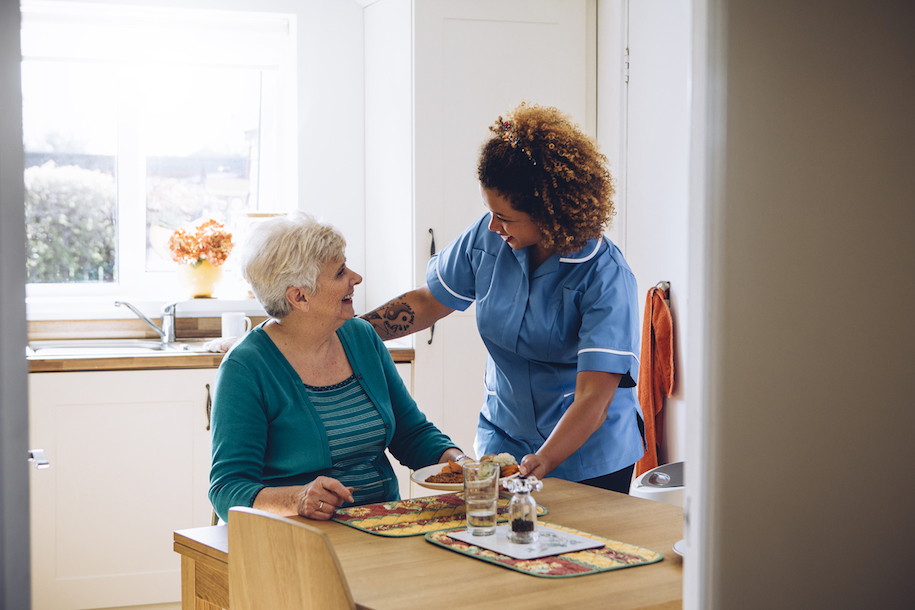
Dementia is a neurological condition that typically affects individuals over the age of 65. There are many different types of dementia. Some, like Alzheimer’s, are diagnosed independently. At other times, diagnoses like Parkinson’s cause symptoms like memory loss, confusion, and agitation which are then labeled as dementia.
Hallucinations and Dementia
One common symptom associated with various types of dementia is hallucinations. These may be visual, auditory or even based on smell, taste or touch. Hallucinations impacting multiple senses at the same time are common with Alzheimer’s. Visual hallucinations are common with Lewy body’s, Parkinson’s and vascular dementia.
Missing Puzzle Pieces
Hallucinations related to dementia are not completely understood. Oftentimes, medical professionals cannot diagnose an exact cause for the hallucinations. Sometimes, medications are the root cause. When this happens, the doctor must weigh the benefits of the medications against the impact of hallucinations to decide whether or not the patient should continue using them.
When Seniors with Dementia Hallucinate
Many seniors who experience hallucinations related to dementia primarily experience than in the late afternoon or evening. This is known as Sundowner’s syndrome. While the cause is not completely clear, some possible reasons for this include fatigue, restlessness from being homebound or experiencing too little daily activity. Disruptive sleep-awake cycles and the lack of light which might make it difficult for some seniors to understand what familiar objects are, causing them to seem frightening or unfamiliar, can also cause Sundowning.
How to Help
While it may not be possible to always control hallucinations, there are some things that family caregivers can do to help the senior find comfort during these episodes.
Reassurance
First, it is important to reassure the senior. Try to avoid telling them they are crazy or what they are experiencing is not real. Remember, to them, it seems real. Use phrases like “I see you are scared” or “I am here for you” instead of judging or speaking abruptly. Remain with them, or provide them with a friendly face to remain with them throughout the episode. A friend, family member or trusted in home caregiver are all excellent options.
Touch
Sometimes touch provides comfort during episodes of hallucination. A simple rub of the back, pat on the shoulder or light hug might provide the comfort your senior loved one needs. Respect the individual’s desire to maintain space if that is what they want, but remain close in case they change their mind and want to hold a hand or become receptive to some form of physical contact.
Change of Location
A change of location may provide comfort when a person is hallucinating. Walking to another room or getting outside onto a patio or in a fenced backyard can help to bring reality back to the surface and make the hallucination less apparent or scary. Try taking a walk for a change of scenery, or even turn on a television or radio for distraction. Just remember to escort the senior if they go outdoors so as to ensure safety and comfort.
The Environment
In the senior’s every day environment, there are things you might be able to do to reduce hallucinations. Look for shadows on the walls or ceiling that may be scaring the senior or causing them to see things that are not there. Check for ambient noises too such as the air conditioner, a ceiling fan or whirring from a common household appliance. Watch for the placement of mirrors. Some seniors may not recognize their own reflection and view it as a stranger in the room. Finally, make sure the senior’s doctor is aware of the hallucinations so that the senior’s health can be evaluated and monitored.
Routines and Schedules
Maintaining consistent routines and schedules often helps seniors to avoid hallucinations or better deal with them when they do arise. This is why many seniors with dementia are most comfortable in their home environment. Having a consistent caregiver who encourages the senior to maintain routines is also of benefit. As are regularly scheduled visits from familiar family and friends.
Find Support
If your loved one is hallucinating, take the time to learn about their condition and look for ways you can help them to overcome their fear and anxiety. Reach out for support as necessary to better understand dementia and hallucinations. This will help you to effectively implement a plan and make positive changes. Salus Homecare San Fernando Valley is always here to help if you have questions or need information. Simply give us a call to speak with a professional, ask questions or schedule an in home evaluation.
There is no ads to display, Please add some

